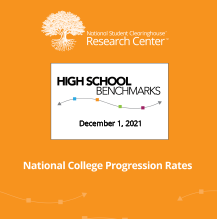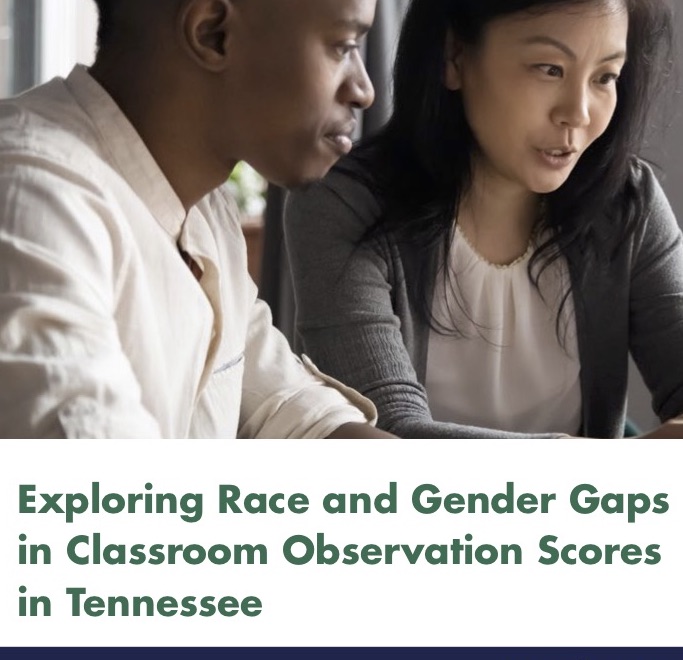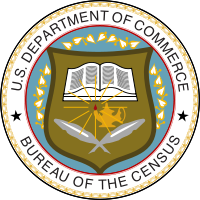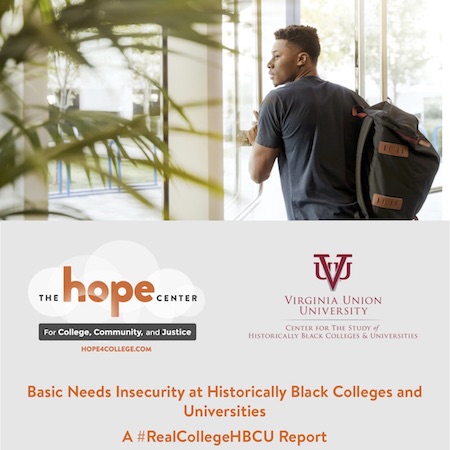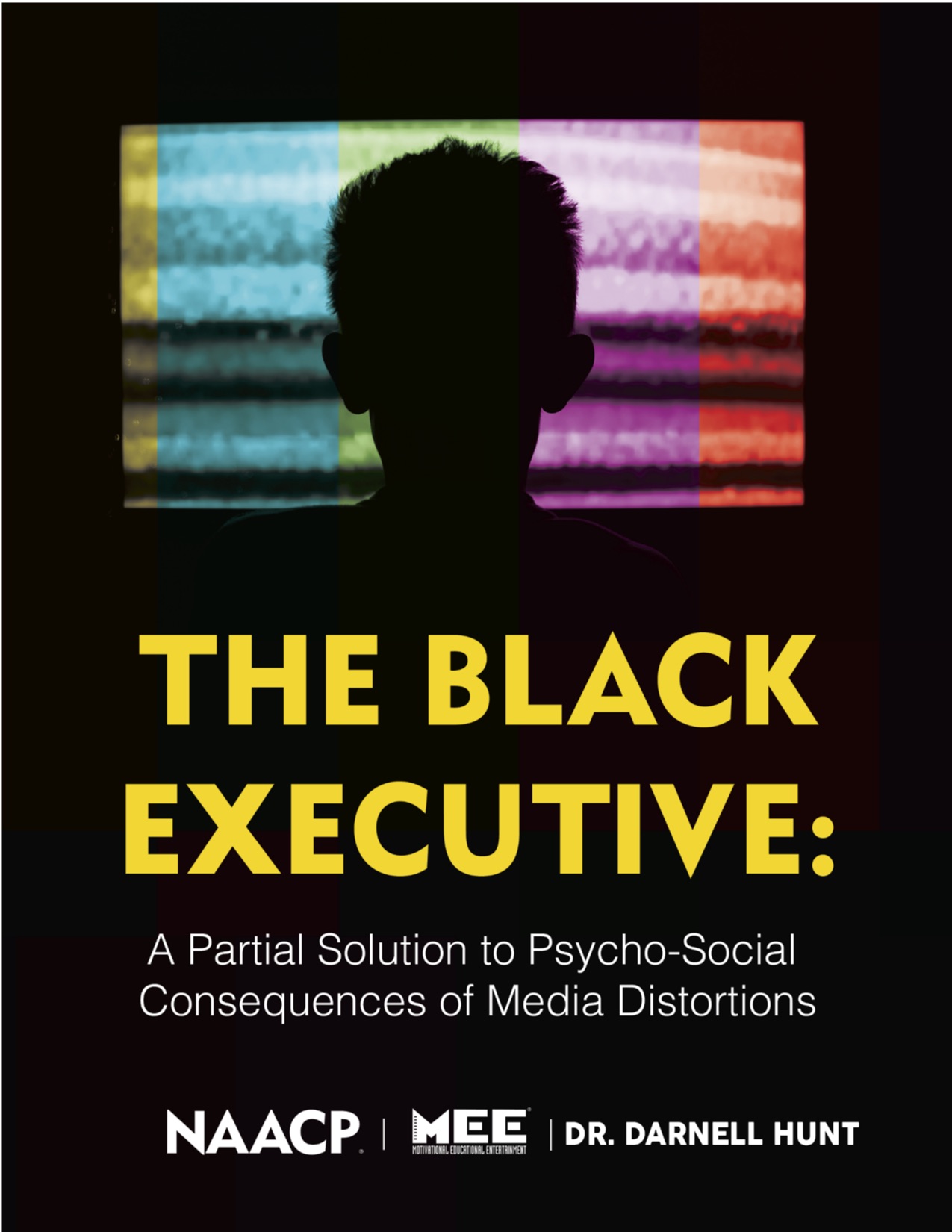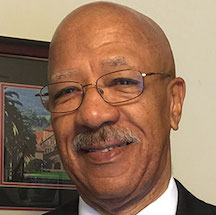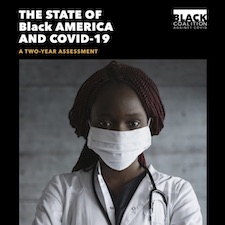How the COVID-19 Pandemic Influenced College Enrollment Rates
A new report from the National Student Clearinghouse Research Center finds that college enrollment rates for 2020 high schools graduates have fallen significantly, especially for students from schools with a large percentage of students from low-income or underrepresented groups.
The Extent of Racial and Gender Bias in Academic Research
A new study of more than 5 million articles published between 2008 and 2019 — primarily by U.S.-based researchers found that Black, Latino, and women authors are underrepresented in many STEM fields and often appear as authors only in less-cited fields.
Telemedicine Could Be a Major Factor in Eliminating Racial Health Care Disparities
A new study from the Univerity of Pennsylvania medical school finds that attendance or “show” rates at follow-up appointments after hospitalization climbed among Black patients from 52 to 70 percent during the pandemic. The boost effectively eliminated the historical racial gap in show rates to follow-up appointments.
Higher Education Benefits Heart Health for All, But Less So for Blacks
A new study led by researchers at the University of Pittsburgh finds that individuals with a college degree were 4.12 times more likely to have an ideal cardiovascular health rating compared to those who did not have a high school degree. For Blacks, the benefit of higher education on heart health was far less.
The Long-Term Effects of Redlining on Public Health in Black Neighborhoods
A new study by researchers at the University of Maryland shows that people in areas long ago labeled as “red” (hazardous) or “yellow” (definitely declining) on infamous government housing maps in the 1930s, today have about a five-year shorter life expectancy than those living in areas that had been categorized as favorable for home mortgage lending.
University of Houston Law Center Study Examines Racial Disparity in Marketing by Lenders
A new study by researchers at the University of Houston Law Center found the payday lending industry often targets Black and Latino communities in advertising their products, while the mainstream banking industry targets White consumers.
Study Finds That Black Male Teachers May Face Bias From Classroom Evaluators
A new study finds that when comparing similarly credentialed teachers whose pupils achieved at about the same level, White and female teachers were rated higher than Black men. Poor evaluations may lead to lower job satisfaction, fewer promotions, and more Black men leaving the teaching profession.
Harvard Study Documents the Persisting Problem of Environmental Racism
The term "environmental racism" was first used about 40 years ago and brought attention to the fact that African Americans are more likely than their White peers to be exposed to air, water, and other types of pollution. New research shows that environmental racism is still very much an issue.
Census Report Details Racial Differences in Family Makeup in the United States
Living arrangements can impact a child's education. Single parents may have less opportunity to read to their children, attend school functions, or offer help with homework. Single-parent families tend to have lower incomes and as a result, may be less able to afford educational resources.
Black Patients More Likely Than Whites to Be Described by Physicians in Negative Terms
Researchers at the University of Chicago searched the electronic health records of over 18,000 adult patients, including over 40,000 history and physical notes. They found that Black patients were 2.54 times as likely to have at least one negative descriptor in their medical records compared to White patients.
Researchers Find That El Niño Impacted the Volume of the Trans-Atlantic Slave Trade
El Niño, an oceanic phenomenon that affects worldwide weather patterns, significantly affected the number of enslaved Africans transported from West Africa to the Americas between the mid-1600s and mid-1800s, according to an interesting new study from the University of California, Davis.
A Snapshot of the Status of Black Teachers in the Nation’s K-12 Schools
New data from the U.S. Department of Education examines the background and school settings of Black or African American teachers in public and private schools in the United States before the coronavirus pandemic. During the 2017-18 school year, 7 percent of all teachers were Black or African American.
Age, Race, and Early-Life Disadvantage Among College-Educated Mothers Impacts Birth Weights
According to a new study by researchers at Northwestern University in Evanston, Illinois, Black infants experience disproportionately high risks of low birth weight compared with non-Hispanic White infants, particularly among mothers with high educational attainment and greater socioeconomic advantage.
Survey Shows How Students at HBCUs Were Impacted by the COVID-19 Pandemic
The report from the Hope Center for College, Community, and Justice at Temple University in Philadelphia in conjunction with the Center for the Study of Historically Black Colleges and Universities at Virginia Union University, found that during the pandemic two-thirds of all HBCU students experienced basic needs insecurity.
Study Finds That Hypertension Is a Major Factor in the Rise of Black Maternal...
Chronic hypertension is contributing substantially to maternal deaths in the United States, with particular risk among Black women, according to new research led by scholars at Rutgers University in New Jersey. The study found a 15-fold increase over the past 40 years in maternal mortality rates as a result of the condition.
The Racial Gap in Educational Attainment in the United States
In 2021, nearly 42 percent of non-Hispanic Whites over the age of 25 had obtained at least a bachelor's degree compared to 28.1 percent of Blacks over the age of 25. Black women hold a large lead over Black men in degree attainments at all levels. For Black Americans, the gender gap is most apparent at the master's degree level.
Mentioning Racial or Ethnic Identity Can Increase Chances of Obtaining Career Help
In a new study, researchers at the Wharton School of the University of Pennsylvania found that people are significantly more likely to offer career help to people from underrepresented groups when help seekers mention their racial or ethnic identity in requests.
Ohio State University Study Examines the Reasons for the Racial Gap in Vaccination Rates
A new study led by researchers at Ohio State University finds that Black Americans who were initially hesitant about receiving a COVID-19 vaccine were more likely than Whites who were against taking the vaccine to come to the conclusion at a later date that getting vaccinated was the right thing to do.
Study Finds Racial Differences in Approvals for U.S. Citizenship
A new study led by Emily Ryo, a professor of law and sociology at the University of Southern California, finds that there are racial disparities in who is approved for citizenship during the naturalization process.
Grading the Schools With the Largest Athletic Programs on Their Diversity in Leadership Posts
The latest report on the status of women and racial and ethnic minorities in leadership positions at the 130 educational institutions in the Football Bowl Subdivision of the NCCA has been released by The Institute for Diversity and Ethics in Sport (TIDES) at the University of Central Florida. These are generally the schools with the nation's largest athletic programs.
The Growing Racial Wealth Gap and Its Impact on Higher Education
If we exclude home equity, the median net worth of non-Hispanic White households in 2019 was $79,010. For Blacks, the median net worth - excluding home equity - was $3,630. Thus, Whites had nearly 22 times as much wealth as Blacks when we exclude the value of homes. Four year earlier, Whites held only a 12-to-1 advantage.
Racial Disparity in the Ownership and Value of Particular Assets
While the overall wealth gap between Blacks and Whites is expanding, there are huge differences in the percentage of Black and White families who own their home, have money in the bank, have retirement savings, and who own stock or mutual fund shares. For those who own such assets, there is a huge racial gap in their value.
Wells Fargo Report Details Black Economic Progress
Wells Fargo, the large financial firm, recently released a new report detailing significant economic progress that the Black community has achieved in recent years in employment, lowering the unemployment rate, income, and entrepreneurship.
The Impact of a Lack of African Americans in the Hollywood Executive Suite
There were no Black CEOs or members of the senior management team at the major Hollywood studios in early 2020, and only 3.9 percent of major studio unit heads were Black.
Bowie State University Scholar Shows How to Reduce Civilians Deaths During Police Encounters
Each year about 1,000 civilians are killed in the United States by law enforcement officers. Many of these people killed in these encounters are African Americans. Now, a new system developed by James Hyman, assistant professor of public administration at Bowie State University, may be used to help understand how and why deadly encounters occur.
New CDC Reports Show Racial Differences in Tobacco Usage
In 2020, 14.4 percent of African American adults smoked cigarettes, compared to 13.3 percent of non-Hispanic White adults. Black Americans were more likely to smoke cigars than any other racial or ethnic group. Blacks were nearly twice as likely as non-Hispanic Whites to smoke tobacco in pipes.
New Census Bureau Data Shows Racial Differences in Household Debt
It may come as a surprise to many readers that White households have far more debt than Black households. But Blacks have median household incomes that are only 60 percent of the median income of non-Hispanic White households. And Whites hold 10 or more times the wealth of Black households. So Whites have a far greater ability to pay off their debts.
Study Examines Racism Faced by Faculty of Color in Teacher Education Programs
A new study by scholars at the University of California, Riverside and San Jose State University examines the experiences of faculty of color in teacher education programs who were hired specifically to teach race and racism within programs that, nonetheless, prioritized whiteness and the needs of White student teachers.
New Report Shows Diversity Efforts in High-Tech in Academia and the Workforce Have Stalled
Despite comprising 15 percent of the K-12 student population, Blacks make up just 6 percent of students taking advanced placement computer science courses. In 2020, only 8 percent of bachelor's degrees conferred in computer science were earned by Black graduates, a decrease since 2016.
Major Increase in Black First-Year Enrollments in U.S. Medical Schools
The number of Black or African American first-year students at U.S. medical schools n 2021 increased by 21.0 percent, to 2,562. Black or African American students made up 11.3 percent of first-year students in 2021, up from 9.5 percent in 2020.
Black Students Experiencing Racism on Campus Lack Mental Health Support
College campuses are having trouble recruiting enough therapists to meet the mental health needs of students overall. And few predominantly white colleges employ counselors and mental health professionals who are representative of the racial, ethnic, and cultural diversity of the students.
Stanford Study Finds That Closure of Majority Black Public Schools Leads to Gentrification
Researchers combined U.S. Census data with national statistics on school closures to investigate whether the closures affected patterns of gentrification, a phenomenon marked by an influx of relatively affluent residents in previously disinvested neighborhoods. School closures increased gentrification, the study found – but only in predominantly Black neighborhoods.
How Search Committee Chairs Impact Equity in the Faculty Hiring Process
Many search chairs felt that HR and EO departments were responsible for making sure searches were equitable and inclusive. However, a common theme in interviews was the lack of information and clarity from those departments when it came to the search chair’s role. Some chairs said they had no training on how to center diversity and equity, while others received very little.
The Pandemic’s Huge and Lingering Impact on Black Educational Attainment
The vaccine rollout in the spring of 2021 cut the share of students who planned to cancel their postsecondary education by more than half across all racial and ethnic groups. Fewer students of all races canceled their educational plans, but the racial gaps in educational disruption persisted. Inability to pay was the most cited reason for educational disruptions.
How COVID-19 Took a Disparate Impact on Black America
The study was produced by the Black Coalition Against COVID, a group that consists of several organizations and businesses including the four historically Black health science centers: Meharry Medical College; Howard University College of Medicine; Morehouse School of Medicine, and Charles R. Drew University of Medicine and Science.
Vast Majority of Blacks Believe Their Racial Identity Is Extremely or Very Important to...
A new study by the Pew Research Center finds that the vast majority of Black Americans say being Black is extremely or very important to how they think about themselves. This is true across all income levels and educational backgrounds.

